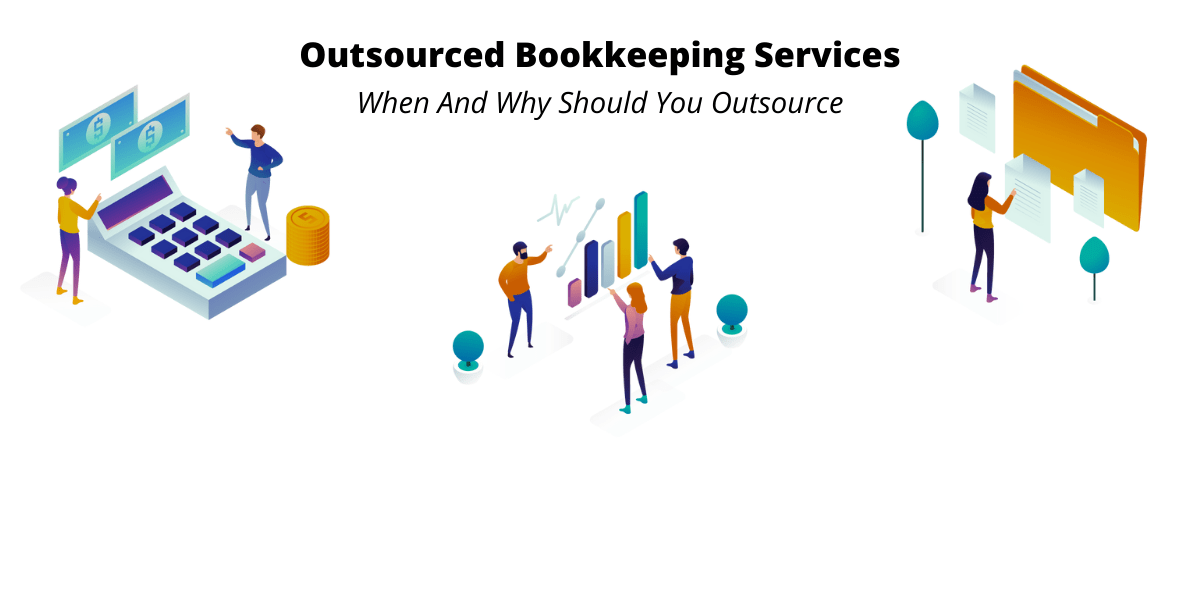Outsourced Bookkeeping Services: The Most Affordable Outsourcing Solutions
Outsourced Bookkeeping Services
A small business owner should always look for ways to save money, and outsourcing certain services is one way. For example, outsourced bookkeeping services, payroll, and office administration services are becoming increasingly popular as businesses find that they can get the same quality of service at a fraction of the cost. These services can be especially helpful for businesses just starting and don’t have the staff or resources to handle these tasks in-house.
Nowadays, it is not only the large multinational conglomerates enjoying the benefits of outsourced business services. Small and medium enterprises (SMEs) are also starting to take advantage of these cost-effective solutions to remain competitive. By outsourcing their bookkeeping needs, businesses can focus on their core operations and leave the administrative tasks to the professionals.
Remote access to a team of bookkeepers means business owners have access to a team of experts who can help their business run more efficiently and make more money. In addition, by outsourcing your bookkeeping services, you’ll free up time and resources to focus on growing your business.
Businesses can save a lot of money by outsourcing their bookkeeping services to local professionals. In addition, there are lower risks associated with using outsourced providers, and businesses can typically expect significant cost savings versus hiring an internal bookkeeper.

Why should I outsource my bookkeeping?
Outsourcing your bookkeeping can help you save time and money. By outsourcing to a professional bookkeeping service, you can rest assured that your books will be kept up-to-date and comply with all tax laws. Additionally, you can save emergency fund on employee salaries, benefits, and office space.
There are many reasons why you should outsource your bookkeeping. Outsourcing allows entrepreneurs to focus on their operational needs and growth opportunities. Additionally, outsourced bookkeeping services offers access to various reports that every business owner should be aware of, such as balance sheets and income statements. Furthermore, outsourcing can actually increase your tax filing process because financial statements are often used when taxes are filed. In some cases, companies may outsource bookkeeping and accounting services to have all the numbers they need to fill out forms with the IRS-compliant reports. Lastly, outsourcing payroll may be a similar scenario where employees want to receive their money on time without worrying about it.
Overall, there are many benefits to outsourcing accounting services. First, when you outsource your bookkeeping, you’re freeing up time and resources so that you can focus on what’s important–growing your business!
When should I outsource my bookkeeping?
Bookkeeping can be outsourced when a business has reached a certain size and complexity that the business owner or staff member can no longer manage. At this point, it is often more efficient and cost-effective to outsource bookkeeping to a specialist provider.
Bookkeeping is an important task for any business, but it can be difficult to manage when you’re also responsible for other aspects of the company. If you feel like DIY is taking longer than it should, it might be time to hire a professional.
There are many signs that you need to hire a bookkeeper – here are a few:
- You’re struggling to keep up with day-to-day bookkeeping tasks
- The books aren’t balancing correctly
- You don’t have enough time to do everything yourself
It’s best to do it sooner rather than later – even pre-revenue businesses require bookkeeping, and consistent record-keeping is invaluable as your company grows. Outsource Bookkeeping and Accounting services for an edge over your competition.

Types of outsourced bookkeeping services
There are two main types of outsourced bookkeeping services: those that are done with a local bookkeeper and those that are done with a virtual bookkeeper.
Local bookkeepers can be helpful for small businesses or individuals who need some help in their accounting tasks but don’t have the time or expertise to do it themselves. They can offer face-to-face interaction and assistance with data entry, overdue invoices, and tracking expenses. However, they may not be as affordable as other options, and they may not have the latest technology or software.
Virtual bookkeepers offer many benefits as local bookkeepers, but they also have some added advantages. They usually have more experience and expertise than local bookkeepers, and they often have access to the latest technology and software. They’re also typically more affordable than local bookkeepers. However, since they’re not physically present with their clients, some communication may be lost.
Hiring a local bookkeeper
A local bookkeeper can provide a more personal service with face-to-face contact and support. However, they may not have the same expertise or experience as a larger firm.
However, their remote location may make it difficult for you to get in touch with them when you need help or support.
It’s important to weigh up the pros and cons of each option before deciding who should handle your company’s books.
Virtual bookkeeping
Bookkeeping is a time-consuming task that can be outsourced by using virtual bookkeeping. This process involves managing your books and software using technology that combines best practices from software and traditional bookkeepers.
When you hire a virtual bookkeeper, you’re entrusting them with your company’s finances. This person will manage everything online, speeding up the process and making it more efficient and accurate. You’ll also have peace of mind knowing that a professional takes care of everything.
The best virtual bookkeeping services let you access your financials from anywhere, on any device. You can store your data securely in the cloud and chat online or on the phone if that’s how you prefer to communicate with the service. Plus, most of these services offer a free trial, so you can try them before buying.
In addition, virtual bookkeeping services are often very comparable to those of in-house accountants. The main difference is that the virtual accountant will likely work from a remote location and use cloud-based software to have access to your financial records. This allows for round-the-clock support and eliminates the need for you to worry about losing any important data.
Some virtual accounting firms can offer various services, including bookkeeping, preparing and filing taxes, and giving business advice. This can be a great option for small businesses or businesses that don’t have the budget to hire a full-time accountant.
Local vs. virtual vs. in-house bookkeeping
Each option has its own unique pros and cons, which we will outline below.
Your accounting firm will have a team of accountants who work in the same physical space. This can be helpful for companies that need a lot of hand-holding and want regular face-time with their accountants. However, it can also be expensive, as you’re paying for both the accountant’s time and the office space.
With virtual bookkeepers, your accountants will work remotely from their own homes or office. This eliminates the need for costly office space and allows you to hire top talent from anywhere. However, it can be difficult to build a personal relationship with your accountant if you don’t ever meet them.
With in-house bookkeepers, your accountants will work at your company’s office. This is the most affordable option for small businesses, and it can be a good solution if you want to build a close relationship with your accountant. However, it can also be inconvenient for you and your employees if the bookkeeper is always around.
Outsourcing bookkeeping services can save you time, money, and space while giving you access to highly-skilled professionals.
Each option has its own benefits and drawbacks, making it difficult to decide what is the best choice for your business.
This can be a great option if you want to be able to meet with your bookkeeper in person and you value the personal relationship that comes with working with someone in your neighborhood. However, local bookkeepers can be more expensive than other options, and they may not have as much experience or expertise as other providers.
This can be a great option if you want to save money on labor costs or if you don’t have time to meet with a bookkeeper in person. However, virtual bookkeepers may not be familiar with the specific laws and regulations for your business. In addition, they may not have as much experience or expertise as other providers.
This can be a great option if you want to save money on labor costs and you value the continuity of having the same bookkeeper. However, virtual bookkeepers may not be familiar with the specific laws and regulations for your business. They may not have as much experience or expertise as other providers.
This can be a great option if you want to save money on labor costs and you value the continuity of having the same bookkeeper. However, virtual bookkeepers may not be familiar with the specific virtual bookkeeping service; on the other hand, it is provided by an accountant or firm that is not located in your area. And finally, an in-house bookkeeper works for your business and is physically present at your place of business.
With a virtual bookkeeping service, you’ll typically have to communicate with your accountant via email or telephone, which can be more difficult if you have questions or need clarification on something. On the other hand, an in-house bookkeeper can be a great option if you’re looking for someone who can handle all of your accounting needs and who will be familiar with your company’s operations and procedures.
What should you look for in an outsourced bookkeeping service?
When looking for an outsourced bookkeeping service, it is important to consider the following:
- The company’s experience and qualifications.
- The company’s turnaround time for completing bookkeeping tasks.
- The company’s rates.
- The company’s customer service and support.
When looking for an outsourced bookkeeping service, it’s important to ask yourself a few questions first. How much are you willing to spend each month? What accounting software do they sync with? Are you looking for just bookkeeping services, or are there other services you also need?
It’s also important to ensure the bookkeeping service is compatible with your preferred accounting software. If not, you may have to spend extra money on additional software that the provider can sync with. Finally, be sure to read our article on business bookkeeping basics before deciding!

The pros and cons of outsourcing
There are several pros and cons to outsourcing your bookkeeping. On the one hand, outsourcing can be more affordable than hiring in-house staff, and it can help you save time and give you access to expertise that you may not have in-house. On the other hand, there is always the risk of data security breaches, and it is important to make sure that you select a reputable outsourced provider.
Businesses outsource a variety of tasks to achieve various goals. One popular reason to outsource is to enable transformation, such as migrating bookkeeping and other key business processes to the cloud while also implementing more streamlined processes. Outsourcing can also help businesses achieve their desired outcomes for improvement, such as increased efficiency, reduced costs, and improved customer service. However, it’s important to weigh the pros and cons of outsourcing before making any decisions.
There are many reasons to outsource, but some of the most common reasons are saving money, focusing on core business functions, and outsourcing bookkeeping services. Businesses can save money by not having to hire full-time employees. They can also build resilience by having a team of experts handle any crisis that may occur.
Pro: Cost-effective
In-house bookkeepers can be very expensive, and they also come with the risk of theft or embezzlement. Outsourced bookkeeping services are more cost-effective and provide a higher level of security for your finances.
On the pro side, outsourcing is cost-effective. By outsourcing, companies don’t have to worry about any additional overhead costs that an employee would generate, such as Superannuation, annual leave, health insurance, vacation, and sick pay. In addition, workers’ compensation is eliminated when contracting with an outsourcing provider.
Often, a single person might not have all the answers to complex/more advanced bookkeeping issues. Additionally, having access to a team of experts who support each other and can share knowledge can provide the best solution for your needs.
Con: Hidden costs
When hiring a professional to do a task for you, it’s important to be aware of any hidden costs that may come up. This can be especially true with contract law, where the scope of work can quickly become more complex than you initially anticipated. In these cases, additional costs can become a problem very quickly.
On the downside, there are hidden costs to outsourcing that can sometimes go unnoticed. The best way to manage this is by talking to your bookkeeper about this to understand and set expectations around any work done offshore. This will help avoid any surprises down the line.
Pro: Proactive approach
Business owners often take a proactive approach to their business; they are focused on serving their customers and growing their businesses to achieve their desired lifestyle. This is a great mindset, but it can be not easy to do everything yourself, so hiring an external bookkeeping firm can be beneficial. By bringing in professionals, you’re ensuring that any red flags (like cash flow issues or expenditure) are spotted ahead of time so that you can address them quickly and effectively. You didn’t go into business to become a trained financial professional who lives in the books–that’s what the professionals are for!
On the pro side, having a team of stock management for your financial data can give you peace of mind and the confidence to continue forward, knowing you won’t run into any unforeseen financial trouble down the road. Plus, it’s a proactive approach that can help you avoid potential disasters down the line.
Con: Less control
When you hire a bookkeeping team, you’re giving up some credit control and stock control. For example, you won’t have instant access to updates or information – instead, you’ll need to schedule calls or meetings. This means that communication is key, and it’s important to ensure that your bookkeepers are keeping you in the loop regularly. However, the benefits of having an external team far outweigh this downside.
On the con side, outsourcing your financial data can feel daunting for many business owners. It’s important to do your homework and work with a trusted partner before making a final decision. By doing so, you’ll have peace of mind knowing that your data is being taken care of by experts who understand the ins and outs of finance and accounting.
Pro: Reduced fraud
One of the biggest advantages of using a bookkeeping service is that it reduces the chance of fraud. When one person is in charge of all the financial transactions, it becomes easier to manipulate the books and cover up any illegal activity. Using a bookkeeping service essentially puts another layer of protection between your company and potential fraud.
On the pro side, outsourcing your bookkeeping to a reputable company means that no one person has control over the books. With multiple pairs of eyes monitoring transactions, the risk of fraud and any accounting anomalies is significantly reduced. Furthermore, it’s a mistake to blindly trust employees, even if you have a strong relationship. This can lead you into a false sense of security that leads to heartache down the road.
Con: Not local
The biggest risk with using an overseas company is that they may not know your local tax laws, BAS statements, superannuation, GST, or payroll requirements. This can leave you open to harsh penalties from the Taxation Office (ATO) or other government bodies. However, there are a lot of overseas bookkeeping and business service providers based overseas, so it’s important to do your research before choosing one.
On the con side, it’s important to weigh up if outsourcing overseas is the right long-term strategy. The main downside is that you lose control over what’s going on – communication and cultural barriers can make things difficult. You might not be able to trust that your data is being handled securely. An outsourced team can be a more effective and risk-free option. You’ll have better communication and know that your data is being handled securely by someone you trust.
- Smart Tax: How to Use Smart Tax Calculator and Federal Income Tax Calculator - December 5, 2023
- Collateralization: 5 FACTS you should know about collateralization - May 1, 2023
- A Comprehensive Guide to Forensic Accounting: Definition, services, and more - December 15, 2022







